Latest News
16 December 2021
Veni grants for seven leading TU Delft researchers
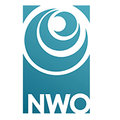
The Dutch Research Council (NWO) has awarded 89 highly promising young scientists from the ENW and ZonMw domain a Veni grant worth up to 280,000 euros. The grant provides the laureates with the opportunity to further elaborate their own ideas during a period of three years.
13 December 2021
Ronald Hanson wins Physica Prize 2022

The Physica Prize 2022 has been awarded to Ronald Hanson, distinguished professor in quantum computing and quantum internet at TU Delft and group leader at QuTech. According to the Nederlandse Natuurkundige Vereniging, he deserves the prize for several reasons.
09 December 2021
Irene Dedoussi new member of the Young Academy 2022
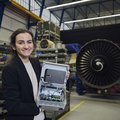
The Young Academy is welcoming ten new members. They are researchers who work in a variety of disciplines, have been selected for their scientific achievements, and received their doctorates less than ten years ago. One of them is Dr. Irene Dedoussi, Associate Professor in the field of climate impact of aviation.
07 December 2021
Collaborating with China: in search of balance

“Partnering with China has pros and cons – it is not a black and white situation”, said Tim van der Hagen, President of the Executive Board of TU Delft at the recently held symposium on 9 November. “There are risks, and people worry about knowledge protection, about dual use. It is important that together and in dialogue with external parties and experts, we help our researchers find the right balance for their specific joint project. A symposium like this one and the China Tools living document our university developed earlier this year are a real, concrete help in navigating the waters of academic collaboration with China”.
02 December 2021
Climate adaptation of households compared internationally
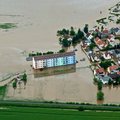
The climate is changing, not only in the Netherlands, but far beyond as well. The UN climate conference in Glasgow in 2021 had a clear message: climate adaptation is required of everyone; from governments to individuals around the world. Researchers from Delft University of Technology and Twente University investigated the drivers of what motivates or hinders people in different cultures in climate adaptation. The results were published in the scientific journal Nature Climate Change.
30 November 2021
The formation of kidney stones on a microscale
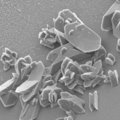
Researchers from TU Delft developed a method to watch the formation of kidney stones on a microscale, in a so called microfluidic platform. By slightly adjusting the pH and the concentration of specific minerals, the formation could be slowed down or inhibited completely. The research is now published in Biomicrofluidics.
24 November 2021
TU Delft creates one of the world’s most precise microchip sensors – thanks to a spiderweb
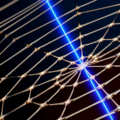
A team of researchers from TU Delft managed to design one of the world’s most precise microchip sensors; the device can function at room temperature – a ‘holy grail’ for quantum technologies and sensing.
23 November 2021
Universities of the Netherlands present Lifelong Learning Platform

On 23 November, a new national course catalogue for lifelong learning www.universitairdoorleren.nl was launched. This joint project of all VSNU (Association of Universities) member institutions is led by Delft University of Technology and the Open University, and aims to provide a comprehensive overview of all post-graduate education on offer in the Netherlands for adults and professionals wishing to continue their education.
22 November 2021
New platform opens quantum networking to everyone

Starting today, everyone can freely access Quantum Network Explorer (QNE) to experiment with quantum networks. QNE is developed by QuTech—a collaboration between Delft University of Technology and TNO—and specifically aimed at researchers, students, software developers and future users of quantum network applications.
19 November 2021
Delft scientists put the spotlight on combined capture and conversion of CO2
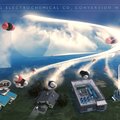
CO2 can be electrochemically converted into valuable chemicals and fuels. Both capturing and converting CO2 do, however, require a lot of energy. An optimal combination of both processes can save a lot of energy and reduce the loss of materials. The TU Delft research group of David Vermaas recently published a paper in Nature Catalyses, summarising the various ideas on how to achieve this.
